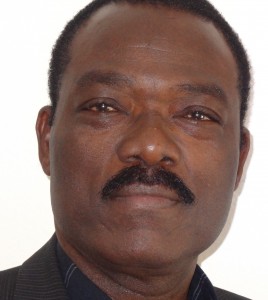How Africa can teach America a lesson in election politics

Founder and Publisher
“The African” Magazine
When Washington, D.C. mayor Vincent C. Gray and the city’s police chief, Cathy L. Lanier, were asked on 31 October during a weekly radio program titled “Ask the mayor” broadcast on WTOP (the area’s 24hr-news radio station) whether the city was prepared to deal with a possible uprising following the presidential election to be held six days later, I remembered having heard on another local radio station several weeks earlier that there were, indeed, fears of rioting if President Barack Obama won re-election. This led me to think that, in spite of everything, the United States has something to learn from Africa in terms of election politics.
While post-election violence is commonplace across Africa, it has never occurred, to my knowledge, in any country after the democratic re-election of the incumbent president. Post-election riots take place in Africa only when the incumbent president rigs the election, thus giving the outraged citizens who are robbed of their rights no other choice than to get their frustration out on the street – if they have the guts to do so knowing the violent repression in store for them.
The U.S. electoral law may not be perfect, as it allows a candidate to be elected president without necessarily winning the largest number of popular votes – something that has happened only four times in our long political history. But elections here are unquestionably democratic. Despite the controversy over the 2000 election result that was put to rest after the U.S. Supreme Court ruled in favor of George W. Bush on the Bush v. Gore case, George W. Bush was later confirmed the winner after a comprehensive review conducted by major U.S. news organizations.
Clearly, the would-be protesters of Obama’s re-election (who did not carry out their threat after all) have it upside down, in our country where the incumbent president did not have the power to rig the election, nor, if we really stretch it, send the army to surround Mitt Romney’s residence (had Romney been the winner) and dare him to come out if he is enough of a man. Nor could Obama send the army to beat up or fire at protesters as we saw in 2012 in a large Central African country where the incumbent president’s dubious re-election outraged the opposition and sent the protesters to the streets, a replica of what we saw the previous year in a West African country where the opposition leader was denied his crystal-clear victory.
While it makes sense for citizens who are robbed of their rights to express their outrage on the street, the mere thought of protesting the election of a candidate who has earned the votes of free electors defies logic. This has no place in our strong democracy, no matter how much one hates the incumbent’s skin color and how desperately one wants to stop the unstoppable wheels of history. It’s hard to stop a train, isn’t it?
For once, Africa should be proud to teach America a lesson in election politics.


